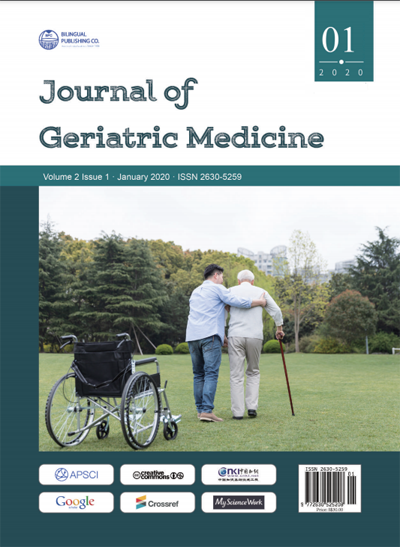 Correction & Withdrawal Policies
Correction & Withdrawal Policies
Philosophy of Gerontology from the Past to the Future in Japan
DOI:
https://doi.org/10.30564/jgm.v2i1.2249Abstract
Gerontology, as the study of aging, is not only an interdisciplinary and intra disciplinary study, but also an international and inter-professional study, to create awareness on the concept among people, throughout the globe. The philosophy of Gerontology is a practical philosophy to explore the nature of humanity itself and to practice learning. Gerontology is a science as well as human philosophy. That is to say, studies of practical application, seeking various ways of life that can help human beings live in peace and tranquility. When the scientific studies are approached globally in various languages and cultures, seeking the true meaning of life, people can be of one and the same ideal. Gerontology is also part of Science and Technology.
Keywords:
Gerontology; Philosophy; Bioethics; Education; QOL; ZenReferences
[1] R. Takahashi. Philosophy of Gerontology with Science and Technology: Personal View of Bioethics & Gerontology in Advanced Future. HSOA Journal of Gerontology & Geriatric Medicine, 2018, 4(019): 1-7.
[2] E. Metchnikoff, C. Mitchell. Nature of Man or Studies in Optimistic Philosophy. G. P. Putnam’s Son, Yew York and London, Knickerbocker Press, 1910: 297-298.
[3] F. Amako. Rouka. Igakushoin, Tokyo, Japan, 1974. (In Japanese)
[4] F. Amako F. Rounenbyogaku ni kansuru Bunken. Nihon Rinshou, 1952, 10: 327-328. (In Japanese)
[5] K. Tachibana K. Rounengaku: Sono Mondai to Kousatsu. Seishinshobou, Tokyo, Japan, 1971. (In Japanese)
[6] WM Bodiford. Neo-Confucianism and the Japanese Martial Arts. InYo: Journal of Alternative Perspectives, SDK supplies, Japan, 2006.
[7] E. Kaibara. Yojokun: life lessons from a samurai/ Kaibara Ekiken; translation by William Scott Wilson. Koudansha Internatrional, Tokyo, Japan, 2009.
[8] Nippon Care-Fit Service Association. Kigatsuku Project 2012 Gerontology International Conference Report Youth is a Gift, Age is an Art. Nippon CareFit Service Association, 2012, 11-20.
[9] EF. Ansello. Marginal gerontology and the curriculum palette. Gerontol Geriatr Educ, 2011, 32: 199- 214.
[10] R. Takahashi. The Science, Philosophy and Bioethics of Gerontology: An Individual and Community Journey from Japan. Lambert, 2019.
[11] R.Takahashi. Edification through Zen & Zanshin from Sri Lanka for Japan in Peace and Harmony. Odisha Journal of Social Science, 2020, 7(2): 4-13.
[12] R.Mueller. The Philosophical Reception of Japanese Buddhism After 1868. The Dao Companion to Japanese Buddhist Philosophy, DCCP, 2019, 8: 155-203.
[13] D.T. Suzuki. Swedenborg Buddha of the North (Tran. A. Bernstein). Swedenborg Studies, 1996, 5.
[14] D. Katsumine. Zen to Chojuhou, Kouyukan, 1907.
[15] JE. Jensen. That All May Be Edified. BYU Speeches, 2011. https://speeches.byu.edu/talks/jay-e-jensen/that-allmay-be-edified-2/
[16] R. Tagore. Japan A Lecture, the Macmillian Company, 1916.
[17] D.T. Suzuki. Tagore Seitan Hyakunensai Kinen Ronbunshu (Tagore Birth 100yrs Celebration Memorial Book). Kinenkai, 1961, 3-5.
[18] T. Sasaki. Budo (the martial arts) as Japanese culture. The outlook on the techniques and the outlook on the human being. Archives of Budo, 2008, 4: 46-49.




 Ryo Takahashi
Ryo Takahashi





